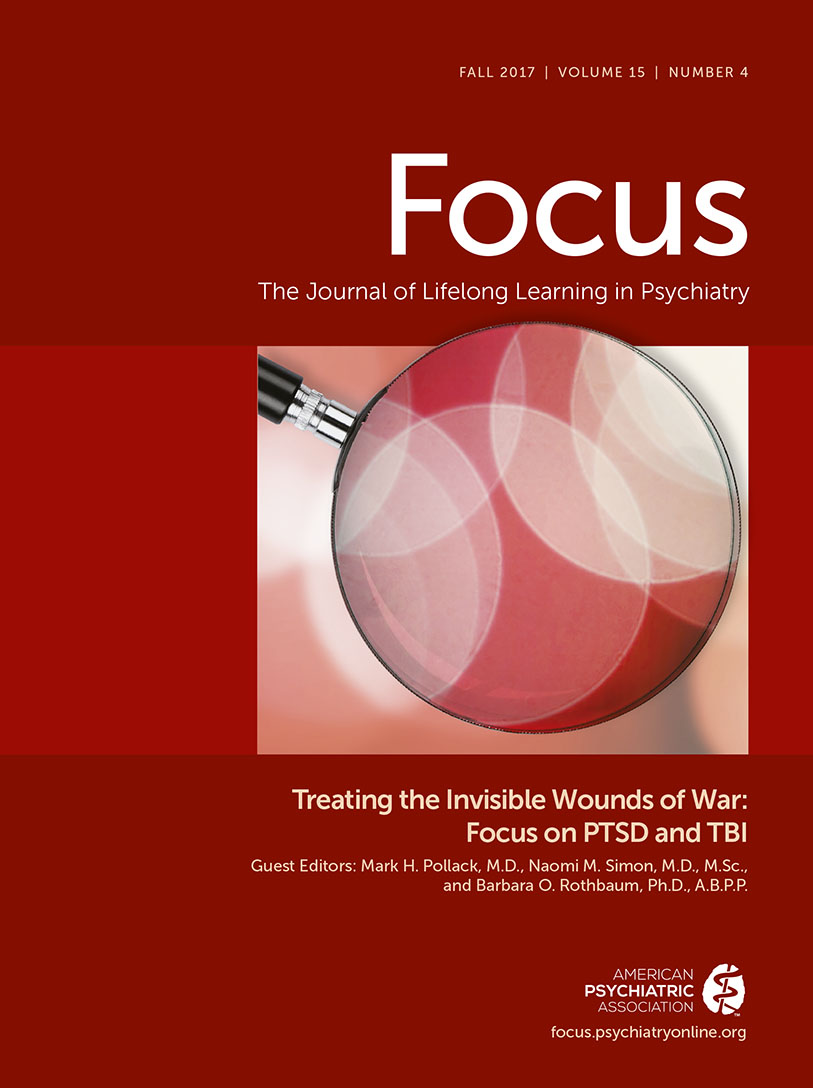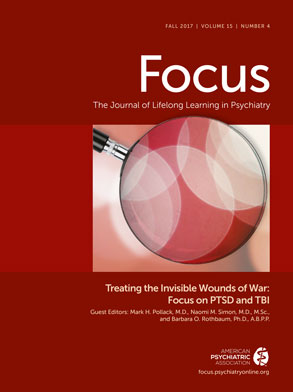After the attacks on September 11, 2001, that brought down the World Trade Center towers in New York and badly damaged the Pentagon in Arlington, Virginia, the United States has been engaged in armed conflict in Iraq and Afghanistan, the longest war in our country’s history. Of the roughly three million men and women who have served in these war zones, more than half have deployed multiple times. Close to 7,000 of our service personnel have died thus far in these conflicts, and about a third have returned with “invisible” wounds of war—posttraumatic stress disorder (PTSD) and/or traumatic brain injury (TBI). These wounds are complex and highly individualized in their presentation, often including other stress-related conditions such as depression and substance use disorders, and they can cause marked distress and disability to the returning individual and impede his or her ability to reintegrate into life at home or at work. Further, the impact of service and multiple deployments extends beyond the individual, to touch his or her family. Rates of marital discord and divorce are elevated among couples in which one or both partners have served. Repeated deployments are associated with higher levels of depression and anxiety among their children, persisting even after the deployed parent returns. More than 20 veterans kill themselves every day, a rate of suicide that is orders of magnitude higher than in the general population; this grim observation dramatically underscores the need to better address the profound aversive experience of many military service members, as well as the often unaddressed impact on their family members and loved ones.
Although goodwill from the public has proliferated for returning veterans, system and community resources are often fragmented, and veterans and their families may find navigating the systems of care and support to be difficult. Only about half of returning veterans receive needed care, and for many the care is inadequate. The U.S. Department of Veterans Affairs (VA) and military facilities, despite some well-publicized difficulties, have worked hard to take care of returning veterans, but the need is great, and these institutions clearly cannot and should not have to do it alone. Although many veterans benefit from their care at the VA or other military-related institutions, some may be ineligible for services or uncomfortable accessing treatment in those settings. Further, VA facilities are not commissioned to provide care for veterans’ spouses and children, who may, as a result, have difficulty accessing the treatment that they need.
In 2015, with substantial support from the Wounded Warrior Project, four academic medical centers across the country—Emory University in the South, Massachusetts General Hospital in the Northeast, Rush University Medical Center in the Midwest, and the University of California, Los Angeles, in the West—established the Warrior Care Network. As part of this initiative, we have expanded outpatient services for post–September 11 veterans and their families and developed innovative intensive outpatient programs to provide service personnel from across the country with care for PTSD, related mental health conditions, and TBI. To date, our network has treated over a thousand individuals, and the requests for services from veterans and their families continue to escalate. In this issue of Focus, we present a series of articles describing this multicenter collaborative network of care for our veterans and issues related to the treatment of PTSD and related illnesses.
Acknowledgments
The authors gratefully acknowledge the critical support received from the Wounded Warrior Project, which has supported the four partner institutions and served as a partner in creating the Warrior Care Network, which is dedicated to filling gaps in care for the invisible wounds of war for service members, veterans, and military families.

